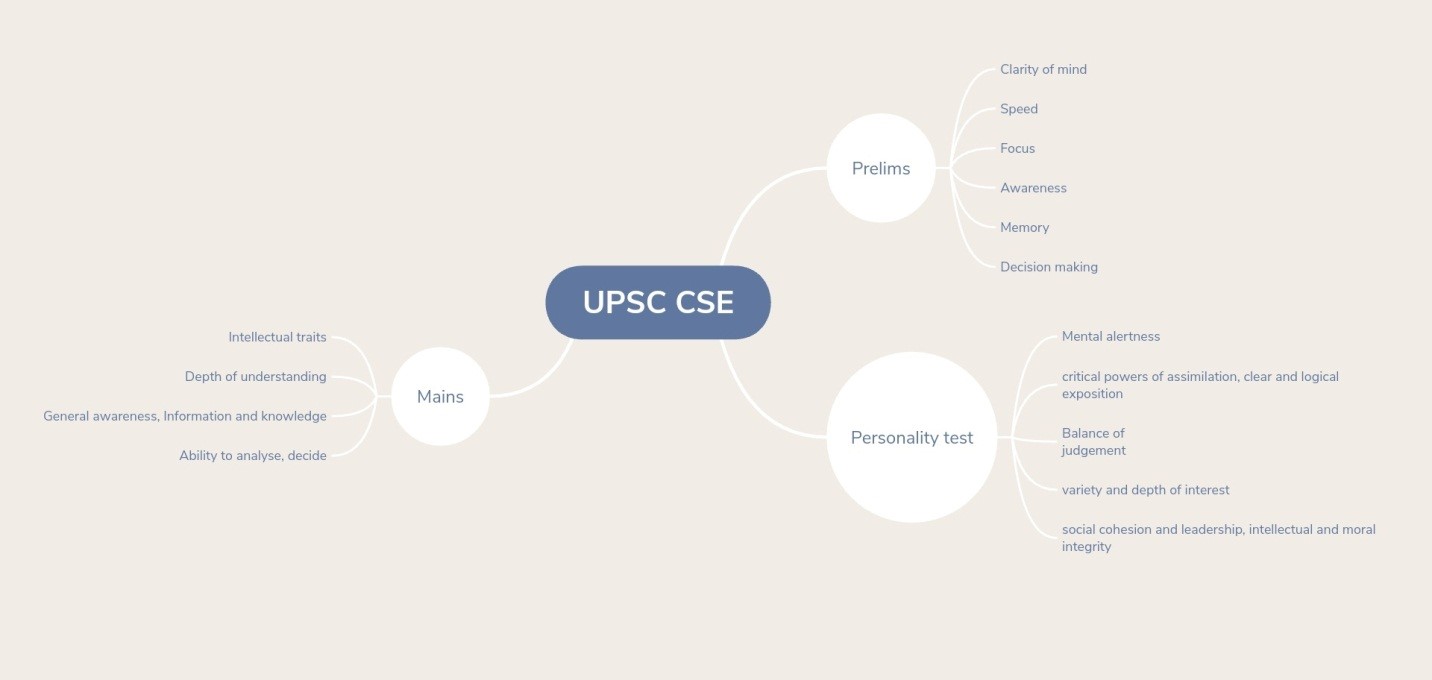



Candidates study with all heart and everything they possibly can but still are not able to fulfill their dream. Why does this happen? If one is aware what the exam expects from them, then they can attune accordingly and achieve success. It is very important for one to know that how UPSC will assess aspirants, from diverse backgrounds, for everything that is required in a civil servant, through this exam. Just like one checks a pot by moving it around the fingers similarly UPSC assesses an aspirant’s mind, thought and character by its three-tiered exam pattern.
Let us learn ‘what’ and ‘why’ UPSC expects from a candidate at each stage of the examination….
PRELIMS: Through this stage the following qualities are assessed.
Similarly, one should be aware of the differences between each tier of the exam. This will help them help approach preparation in a scientific manner and mould their brain and personality accordingly.
MAINS: Notification says that, ‘The main Examination is intended to assess the overall intellectual traits and depth of understanding of candidates rather than merely the range of their information and memory. The questions are likely to test the candidate’s basic understanding of all relevant issues, and ability to analyze, and take a view on conflicting socio-economic goals, objectives and demands. ‘Mains’ assesses the quality of thoughts and content of one’s mind. These will enter subconsciously into one’s answer sheets. Through this stage the following qualities are assessed.
INTERVIEW:
Notification says that, ‘The object of the interview is to assess the personal suitability of the candidate for a career in public service. The test is intended to judge the mental calibre of a candidate. In broad terms this is really an assessment of not only his intellectual qualities but also social traits and his interest in current affairs. Some of the qualities to be judged are mental alertness, critical powers of assimilation, clear and logical exposition, balance of judgement, variety and depth of interest, ability for social cohesion and leadership, intellectual and moral integrity. It is not intended to be a test either of the specialised or general knowledge of the candidates which has been already tested through their written papers. Candidates are expected to have taken an intelligent interest not only in their special subjects of academic study but also in the events which are happening around them both within and outside their own State or Country as well as in modern currents of thought and in new discoveries which should rouse the curiosity of well-educated youth’.
The above mentioned facts can be summarized as below:

Similarly some traits of a civil servant are:

UPSC CSE preparation is not just about rot learning. It is a psychological journey- one needs to be mentally prepared. If one understands these facts, one’s strategy and approach to this examination will change for the better.
© 2024 iasgyan. All right reserved